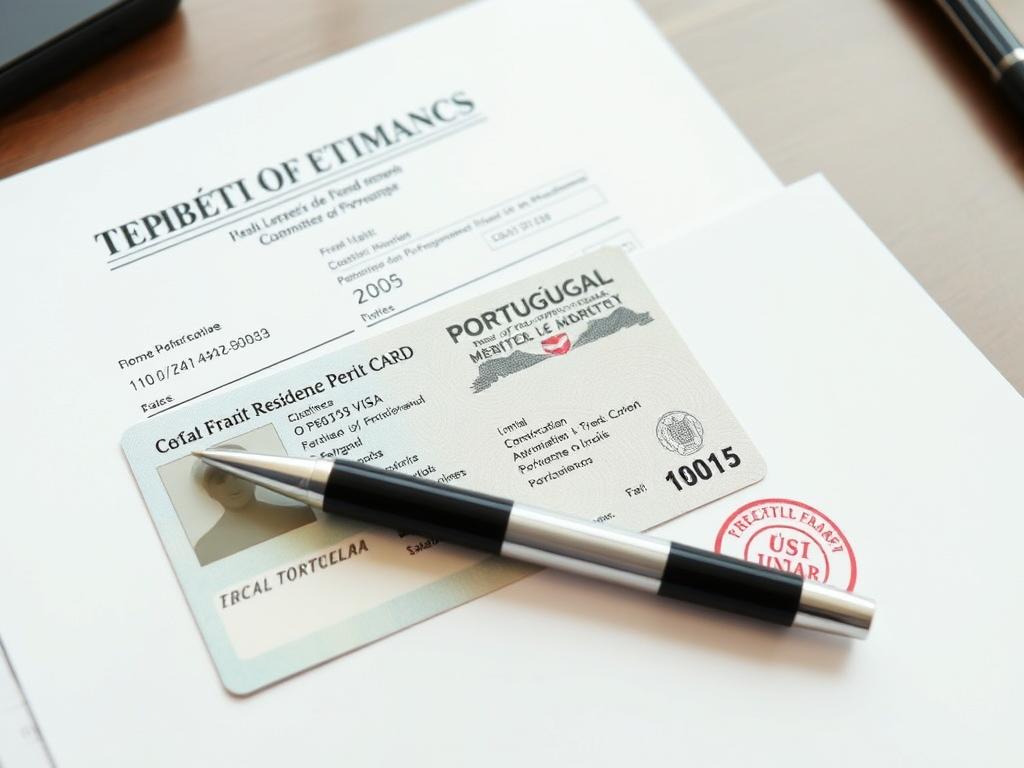Portugal has emerged as an attractive destination for foreign entrepreneurs seeking to establish businesses in Europe. With its strategic location, favorable business environment, growing startup ecosystem, and quality of life, Portugal offers numerous advantages for international business owners. This comprehensive guide walks you through the essential steps, legal requirements, and practical considerations for starting a business in Portugal as a foreigner in 2026.
Why Choose Portugal for Your Business Venture?
Before diving into the specifics of business formation, it’s worth understanding what makes Portugal an appealing destination for foreign entrepreneurs:
Strategic Advantages
- Strategic location as a gateway to European, African, and South American markets
- EU membership providing access to a market of 500+ million consumers
- Part of the Eurozone and Schengen Area
- Strong trade relationships with Portuguese-speaking countries (Brazil, Angola, Mozambique)
- Modern infrastructure and digital connectivity
Business Environment
- Streamlined business registration process (company formation in 1-2 days)
- Competitive corporate tax rates (21% standard rate)
- Special tax regimes for non-habitual residents
- Growing startup ecosystem with government support
- Skilled, multilingual workforce with competitive labor costs
Legal Requirements for Foreign Entrepreneurs
As a foreigner looking to start a business in Portugal, you’ll need to fulfill several legal requirements before proceeding with company registration:
Residency Status and Visa Requirements
Your nationality determines the process for establishing a business in Portugal:

EU/EEA/Swiss Citizens
If you’re from the EU, EEA, or Switzerland, you have the right to establish a business in Portugal without additional permits. However, you should:
- Obtain a Registration Certificate (within 30 days after your first three months)
- Register with the Portuguese Tax Authority
- Register with Social Security
Non-EU Citizens
Entrepreneurs from outside the EU/EEA need to obtain appropriate visa and residence permits:
- D2 Visa: Specifically designed for entrepreneurs establishing a business in Portugal
- Startup Visa: For innovative startup founders (requires incubator approval)
- Golden Visa: Investment-based residence permit (minimum €500,000 investment with creation of 5+ jobs)
Need Help With Your Visa Application?
Navigating Portuguese visa requirements can be complex. Our immigration experts can guide you through the process, ensuring your application meets all requirements.
Essential Identification Numbers
Before registering your business, you’ll need to obtain several identification numbers:
| Identification Number | Purpose | Where to Obtain | Required Documents |
| NIF (Número de Identificação Fiscal) | Tax identification number required for all financial transactions | Portuguese Tax Authority (Finanças) or Portuguese Consulate | Passport, proof of address, tax representative (for non-residents) |
| NISS (Número de Identificação de Segurança Social) | Social security identification number for employers and employees | Social Security office | Passport, NIF, residence permit/certificate |
| NIPC (Número de Identificação de Pessoa Coletiva) | Company tax identification number | Automatically assigned during company registration | N/A (part of company registration process) |
Popular Business Structures in Portugal
Choosing the right business structure is crucial as it affects taxation, liability, and operational requirements. Here are the most common business structures for foreigners starting a business in Portugal:

| Business Structure | Minimum Capital | Number of Partners | Liability | Best For |
| Sole Proprietorship (Empresário em Nome Individual) | No minimum | 1 | Unlimited personal liability | Small businesses, freelancers, individual professionals |
| Private Limited Company (Sociedade por Quotas – Lda) | €1 (€2 for two partners) | Minimum 1 | Limited to capital contribution | Small to medium-sized businesses, most common for foreigners |
| Single-Member Limited Company (Sociedade Unipessoal por Quotas) | €1 | 1 | Limited to capital contribution | Entrepreneurs wanting limited liability protection |
| Public Limited Company (Sociedade Anónima – SA) | €50,000 | Minimum 5 | Limited to capital contribution | Larger businesses, international operations, public trading |
| Branch Office (Sucursal) | No minimum | N/A | Parent company bears liability | Foreign companies wanting to establish presence without separate legal entity |
Most Popular Option: Private Limited Company (Lda)
The Private Limited Company (Sociedade por Quotas) is the most common business structure chosen by foreign entrepreneurs in Portugal due to its flexibility, limited liability protection, and relatively simple formation process. Key features include:
- Minimum capital requirement of just €1 (€2 for two partners)
- Limited liability protection (personal assets protected)
- Flexible management structure
- Lower administrative and reporting requirements compared to an SA
- Option to be formed with a single shareholder (Sociedade Unipessoal por Quotas)
Need Help Choosing the Right Business Structure?
Our business formation experts can help you select the optimal business structure based on your specific needs, goals, and circumstances.
Step-by-Step Company Registration Process
Registering a company in Portugal has been streamlined in recent years, with the process typically taking 1-2 days once all documentation is prepared. Here’s a comprehensive step-by-step guide:

Obtain a Portuguese Tax Number (NIF)
Before starting the registration process, you must obtain a Portuguese tax number (NIF). Non-residents will need to appoint a tax representative in Portugal.
Open a Portuguese Bank Account
You’ll need a Portuguese bank account to deposit your initial share capital. Most banks require your NIF, passport, and proof of address. Some banks may have additional requirements for non-residents.
Choose and Reserve Your Company Name
You can either select a name from a pre-approved list on the Portal da Empresa or request approval for a custom name from the National Registry of Legal Entities (RNPC).
Draft the Articles of Association
This document outlines your company’s rules and regulations, including its purpose, share capital, management structure, and shareholder rights.
Register Your Company
You can register your company through one of three methods:
- Empresa Online: Complete registration online through the Portal da Empresa (requires Portuguese citizen card or digital certificate)
- Empresa na Hora: “On-the-spot company” service at a business formalities center (requires all founders to be present)
- Traditional Method: Through a notary or the Commercial Registry Office
Deposit Share Capital
Deposit the required share capital in your Portuguese bank account (minimum €1 for an Lda, €50,000 for an SA).
Register with Tax Authorities
Submit a declaration of commencement of activity (Declaração de Início de Atividade) to the tax authorities within 15 days of incorporation.
Register with Social Security
Register your company with Social Security within 10 days of starting operations.
Obtain Necessary Licenses and Permits
Depending on your business activity, you may need specific licenses or permits to operate legally.
Registration Costs
Here’s a breakdown of the typical costs associated with registering a company in Portugal:
| Service | Approximate Cost |
| Company Registration (Empresa na Hora) | €360 |
| Name Approval Certificate (if custom name) | €75 |
| Commercial Registration | €200 |
| Publication in Official Gazette | €150 |
| Legal Counsel (optional but recommended) | €500-€1,500 |
Opening a Portuguese Bank Account
Having a local bank account is essential for your business operations in Portugal. Here’s what you need to know:

Requirements for Opening a Business Account
To open a business bank account in Portugal, you’ll typically need:
- Company registration documents (certificate of incorporation)
- Articles of Association
- Company tax number (NIPC)
- Personal identification documents of all directors/shareholders (passport)
- Proof of address (both company and personal)
- Initial deposit (varies by bank)
Popular Banks for Business Accounts
Several banks in Portugal offer services tailored to foreign entrepreneurs:
Millennium BCP
Portugal’s largest private bank with extensive international services and English-speaking staff.
Novo Banco
Offers specialized services for foreign businesses and entrepreneurs.
Santander
International bank with strong presence in Portugal and services in multiple languages.
Tip: Many Portuguese banks require in-person visits to open business accounts. Consider scheduling appointments in advance and bringing a Portuguese-speaking associate if possible.
Understanding Tax Obligations in Portugal
Navigating the Portuguese tax system is a crucial aspect of running a successful business. Here’s an overview of the main tax obligations for businesses in Portugal:

Corporate Income Tax (IRC)
The standard corporate income tax rate in Portugal is 21%. However, there are reduced rates available:
- 17% for small and medium-sized enterprises (SMEs) on the first €25,000 of taxable profit
- 14.7% in the Autonomous Regions of Madeira and Azores
- 5% for companies in the International Business Centre of Madeira (IBCM)
Value Added Tax (VAT)
VAT (IVA in Portuguese) is applied to most goods and services:
- Standard rate: 23% (mainland), 22% (Madeira), 18% (Azores)
- Intermediate rate: 13% (mainland), 12% (Madeira), 9% (Azores)
- Reduced rate: 6% (mainland), 5% (Madeira), 4% (Azores)
Social Security Contributions
Employers must make social security contributions for their employees:
- Employer contribution: 23.75% of employee’s gross salary
- Employee contribution: 11% of gross salary (withheld by employer)
Personal Income Tax for Business Owners
Business owners may benefit from Portugal’s Non-Habitual Resident (NHR) tax regime, which offers:
- Flat 20% tax rate on income from high value-added activities
- Potential tax exemptions on foreign-source income
- Available for a period of 10 years
Double Taxation Agreements
Portugal has signed double taxation treaties with over 70 countries, preventing income from being taxed twice. These agreements are particularly beneficial for foreign entrepreneurs with international operations.
Optimize Your Tax Strategy
Portuguese tax regulations can be complex. Our tax specialists can help you develop a compliant and efficient tax strategy for your business.
Hiring Employees in Portugal
If your business requires staff, understanding Portuguese employment laws and practices is essential:

Employment Contracts
Portuguese labor law recognizes several types of employment contracts:
- Permanent contracts: No fixed end date, provide greatest job security
- Fixed-term contracts: Limited duration (up to 2 years, with possible extensions)
- Uncertain term contracts: For completing a specific task or project
- Part-time contracts: For work less than full-time hours
Key Employment Regulations
Important aspects of Portuguese employment law include:
Working Hours and Leave
- Standard work week: 40 hours
- Minimum annual leave: 22 working days
- Public holidays: 14 days per year
- Maternity leave: 120-150 days
- Paternity leave: 20 days
Compensation and Benefits
- Minimum wage (2025): €1,073.33 per month
- 13th and 14th month salary payments (Christmas and vacation subsidies)
- Overtime pay: 25-50% premium
- Meal allowance: Common benefit (€4.77/day tax-free)
Recruitment Resources
To find qualified employees in Portugal, consider these resources:
- IEFP (Portuguese Employment and Vocational Training Institute)
- Online job portals: Net-Empregos, Indeed Portugal, LinkedIn
- Recruitment agencies specializing in foreign-owned businesses
- University career centers for recent graduates
Promising Industry Opportunities in Portugal
Portugal offers attractive opportunities across various sectors. Here are some of the most promising industries for foreign entrepreneurs:

Tourism and Hospitality
Tourism contributes approximately 20% to Portugal’s GDP, making it a cornerstone of the economy.
- Boutique hotels and accommodations
- Food and beverage businesses
- Tour operators and experience providers
- Wellness and retreat centers
Technology and Startups
Portugal’s tech scene is booming, particularly in Lisbon and Porto, with government support for innovation.
- Software development
- Fintech and blockchain
- E-commerce platforms
- Digital marketing services
Renewable Energy
Portugal is a leader in renewable energy, with ambitious goals for carbon neutrality.
- Solar energy installation and maintenance
- Wind power projects
- Energy efficiency consulting
- Green building technologies
Real Estate and Construction
The property market remains strong, particularly in urban centers and tourist destinations.
- Property development and renovation
- Real estate services for foreign buyers
- Interior design and architecture
- Property management
Agriculture and Food Production
Portugal’s climate is ideal for various agricultural activities, with growing demand for organic products.
- Vineyard and wine production
- Olive oil production
- Organic farming
- Specialty food products
Export-Oriented Manufacturing
Portugal offers competitive manufacturing costs with access to European markets.
- Textiles and footwear
- Ceramics and glassware
- Cork products
- Automotive components
Common Challenges and Solutions
While Portugal offers many advantages for foreign entrepreneurs, there are several challenges you might face. Here’s how to overcome them:

Challenges
- Language barriers: While English is widely spoken in business circles, many official documents and procedures are in Portuguese
- Bureaucracy: Despite improvements, administrative processes can still be complex and time-consuming
- Cultural differences: Portuguese business culture emphasizes relationships and may operate at a different pace than you’re accustomed to
- Access to financing: Can be challenging for new businesses without established credit history
- Finding qualified staff: Competition for skilled workers in certain sectors
Solutions
- Hire bilingual professionals: Work with lawyers, accountants, and consultants who can bridge the language gap
- Use simplified procedures: Take advantage of “Empresa na Hora” and other streamlined processes
- Build relationships: Invest time in networking and understanding local business customs
- Explore alternative funding: Consider government incentives, EU grants, and venture capital
- Partner with universities: Collaborate with educational institutions to access talent
“Understanding the local business culture is as important as knowing the legal requirements. Take time to build relationships and adapt to the Portuguese way of doing business.”
Government Incentives and Support Programs
Portugal offers various incentives and support programs to encourage entrepreneurship and foreign investment:

Financial Incentives
- Portugal 2030: EU-funded program supporting business innovation and competitiveness
- COMPETE: Incentives for research, development, and innovation
- IAPMEI: Support for small and medium-sized enterprises
- Tourism-specific incentives through Turismo de Portugal
Tax Incentives
- SIFIDE II: Tax credits for research and development activities (up to 82.5% of expenses)
- Patent Box Regime: 50% reduction on income from patents and industrial property
- Investment Tax Credit: Up to 25% of eligible investments
- Job creation incentives for hiring young professionals and long-term unemployed
Startup Support
- Startup Portugal: National strategy to support entrepreneurship
- Incubators and accelerators: Network of support organizations across the country
- Web Summit: Annual technology conference connecting startups with investors
- 200M Co-Investment Fund: Matching private investments in Portuguese startups
Maximize Your Access to Incentives
Our specialists can help you identify and apply for the government incentives and support programs that best match your business needs.
Essential Resources for Foreign Entrepreneurs
Here are some valuable resources to help you navigate the process of starting and running a business in Portugal:
Official Government Resources
- Portal da Empresa – Official business portal with information on starting and managing a business
- Immigration and Borders Service (SEF) – Information on visas and residence permits
- AICEP Portugal Global – Agency for investment and foreign trade
- IAPMEI – Agency for Competitiveness and Innovation
Business Support Organizations
- Startup Portugal – Support network for startups and entrepreneurs
- American Chamber of Commerce in Portugal – Network for American businesses
- Portuguese Chamber of Commerce and Industry – Business networking and support
- Regional business associations in major cities
Professional Services
Consider working with these professionals to facilitate your business setup:
Legal Services
- Business formation lawyers
- Immigration attorneys
- Intellectual property specialists
Financial Services
- Accountants familiar with foreign businesses
- Tax consultants
- Banking specialists
Business Services
- Business consultants
- Translation services
- Recruitment agencies
Conclusion: Your Path to Business Success in Portugal
Starting a business in Portugal as a foreigner offers exciting opportunities in a country with a growing economy, strategic location, and high quality of life. While the process involves several steps and considerations, Portugal’s business-friendly environment and support for entrepreneurs make it an attractive destination for international business ventures.

By understanding the legal requirements, choosing the right business structure, navigating the registration process, and leveraging available resources and incentives, you can establish a successful business in Portugal. Remember to seek professional advice tailored to your specific situation and business goals.
Portugal’s commitment to innovation, digital transformation, and international business makes it an ideal location for entrepreneurs looking to access European markets while enjoying a favorable business environment and exceptional quality of life.
Ready to Start Your Business Journey in Portugal?
Our team of experts specializes in helping foreign entrepreneurs establish successful businesses in Portugal. From visa applications to company registration, tax optimization, and ongoing compliance, we provide comprehensive support at every step.







